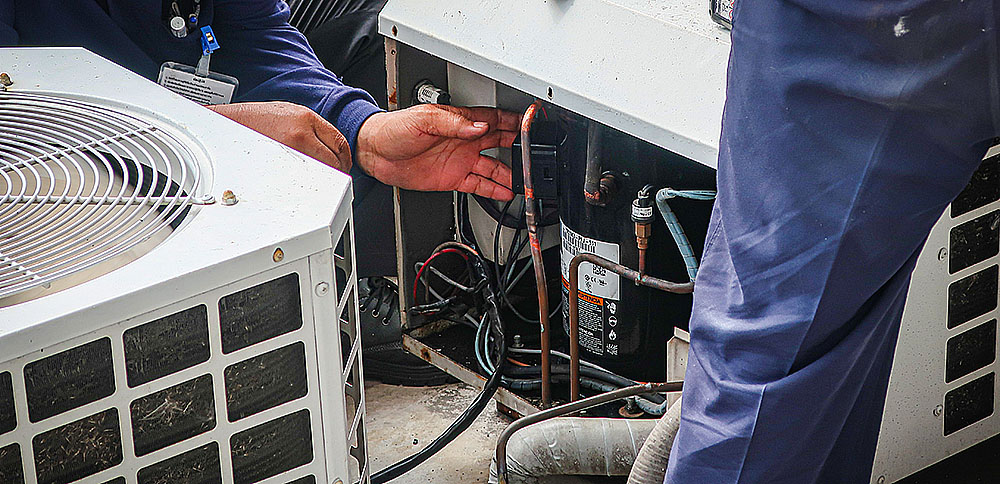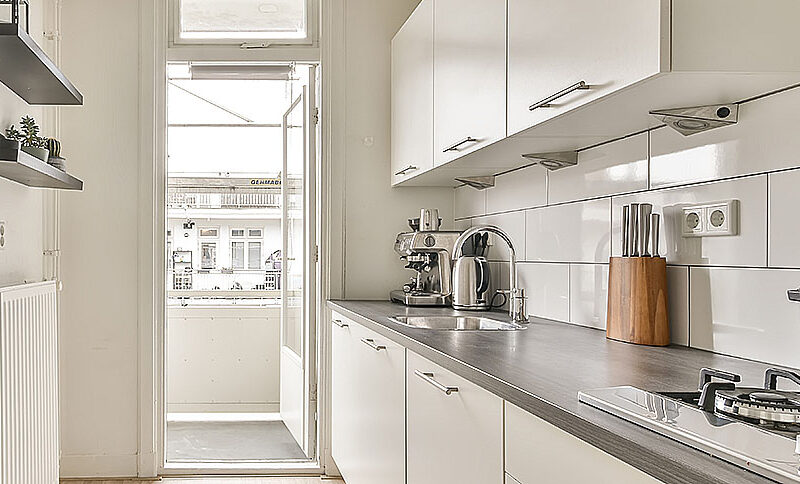A heat pump will keep your house cozy and comfortable when the temperature outside is freezing. These units comprise several different parts to work together as a team carrying out effective and efficient operations. However, sometimes, the units can run into problems. A faulty capacitor is can affect the functionality of your heat pump and you will need heat pump repair services to inspect and replace the capacitor. To help you get through the problem, we are going to share a few causes along with troubleshooting tips.
Causes of A Bad Heat Pump Capacitor
Exposed To Too Much Heat
If you did not know, capacitors are installed deep inside the heat pump as they are heat-sensitive. Capacitors are designed to hold an electric charge and if they are exposed to heat even for a minute or so, they will malfunction. With time, the capacitor will lose its charge and will cause the heat pump to struggle with operations.
In worst-case scenarios, the capacitor will fail and the heat pump will fail to turn on as well. In such a case, you must replace the capacitor. Fortunately, capacitors are not expensive and are easy to replace. However, we do not recommend replacing it on your own.
The reason is as mentioned earlier, capacitors can hold electric charge even if they have malfunctioned. It might be that the heat pump short circuits upon contacting it. This is why unless you have the tools or experience, you should let an expert handle it.
Furthermore, you need to keep in mind that if the heat pump is exposed to too much heat, it will not only damage the capacitor but the entire unit as well. Heat pumps can withstand their own produced heat but external sources can add to it. This is why you should also make sure your heat pump is regularly cleaned and maintained.
During maintenance, the expert would be able to detect problems with heat pump components like overheating that may cause the capacitor and other parts of the unit to fail.
The Wrong Voltage Rating
When it comes to replacing a capacitor and buying a new one for their heat pumps, many homeowners find it difficult or confusing considering all capacitors look the same. But their difference lies in their voltage. If there is a problem with the heat pump and you are performing repairs, make sure to opt for the exact replacement.
Installing a defective or wrong voltage capacitor might damage the heat pump. The best way to opt for the right option is to consult either the user manual or an expert. You can also take a picture of the malfunctioned capacitor, visit your local hardware store, and show them to help you with the replacement.
The Capacitor Is Old
Like other parts of your heat pump, capacitors have a lifespan attached to them too. Although a capacitor will last sometimes months or even years, you cannot expect it to last for decades. Several external factors and the way the heat pump is maintained tell a lot about how long the capacitors and the unit itself will last.
That said, if your heat pump’s capacitor has gone bad, it might simply be that the heat pump along with the capacitor is too old. You can have a heat pump repair McLean expert replace the capacitor.
However, if you observe that your heat pump is constantly running into problems, it means you will need to replace the heat pump.
In this case, you should not spend money on repairs and replacements. A heat pump that has served a decade or more has most probably run out of time and simply needs a replacement. Therefore, instead of spending money on repairs and replacements, opt for a new unit.
Signs Your Heat Pump Capacitor Has Gone Bad
Now that we have discussed the reasons your heat pump capacitor might have gone bad, let’s now shift our attention to important signs that you need to look out for.
Heat Pump Not Blowing Hot Air
The first thing you are going to notice if your heat pump’s capacitor has gone bad is the heat pump won’t blow hot air all of a sudden. You can try turning the unit off and on but if that does not solve the problem, it means something is wrong. If it’s the capacitor, this can happen due to short circuits or electrical fluctuation. For capacitor replacement, you should contact an expert.
It might be that some other component is experiencing a problem and is not allowing the current to flow to the capacitor. Therefore, make sure before you point fingers at the capacitor.
Humming Noise From Outdoor Unit
Another noteworthy sign that your heat pump’s capacitor has gone wrong is a humming sound coming from the access panel. Even though heat pumps produce a slight humming sound when running, if it is too noisy, it means something is surely wrong.
Then again, try turning it on and off to see if it fixes the issue. If the capacitor is bad, the humming sound will be persistent. Contact a professional to see if the capacitor needs replacement.
Rising Energy Bills
If your heat pump’s capacitor has gone bad, you will see an increase in your energy bills. When the capacitor has gone bad, it will take up more power to make up for the loss, which will increase energy consumption. In addition to that, the excess burden on the unit will also impact its lifespan.
That said, if you notice that your energy bills are going up for no apparent reason, you might want to get your heat pump checked. Sometimes, the problem is not clear enough until you run a thorough check.
Heat Pump Turns Off Randomly
If your heat pump turns off randomly, it means the capacitor is the culprit. This is because the capacitor helps with the flow of current and if there is something wrong, the flow will be disturbed causing the unit to shut down. However, if the problem persists, do not continue using the unit as it could heat up and malfunction as well.
Heat Pump Does Not Turn On
A heat pump with a malfunctioning capacitor will either take too long to turn on or won’t at all. This is a clear indication that the heat pump needs attention and it’s the capacitors that are most likely the problem. If you can access the capacitors by removing the side panels, you should take a look.
Make sure the heat pump is disconnected. You do not want to cause a short circuit and experience serious injuries. Wear protective gloves and do not go near a hot heat pump. Wait for it to cool down.
Conclusion
A heat pump capacitor can malfunction due to several reasons. However, you should be familiar with the causes and troubleshooting tips. On top of that, you must be aware of the signs of a capacitor that is faulty. This helps you get down to the problem without spending a lot of time on detecting the problem. Moreover, it’s always better to consult HVAC companies Tyson’s Corner for heat pump repair because they have experts who can fix your heat pump quickly and properly.


